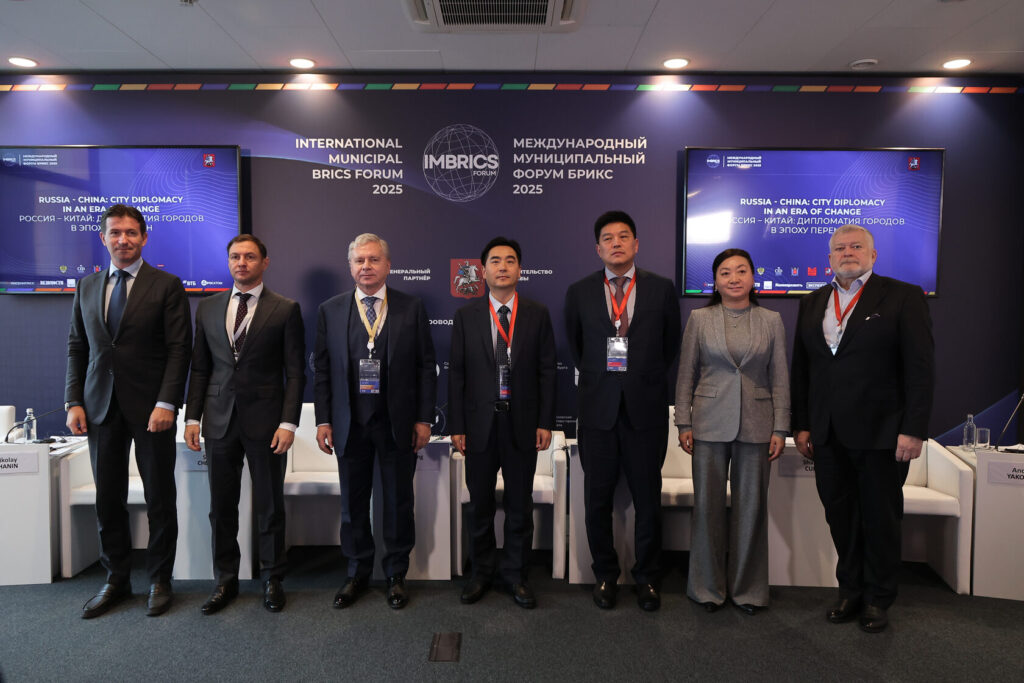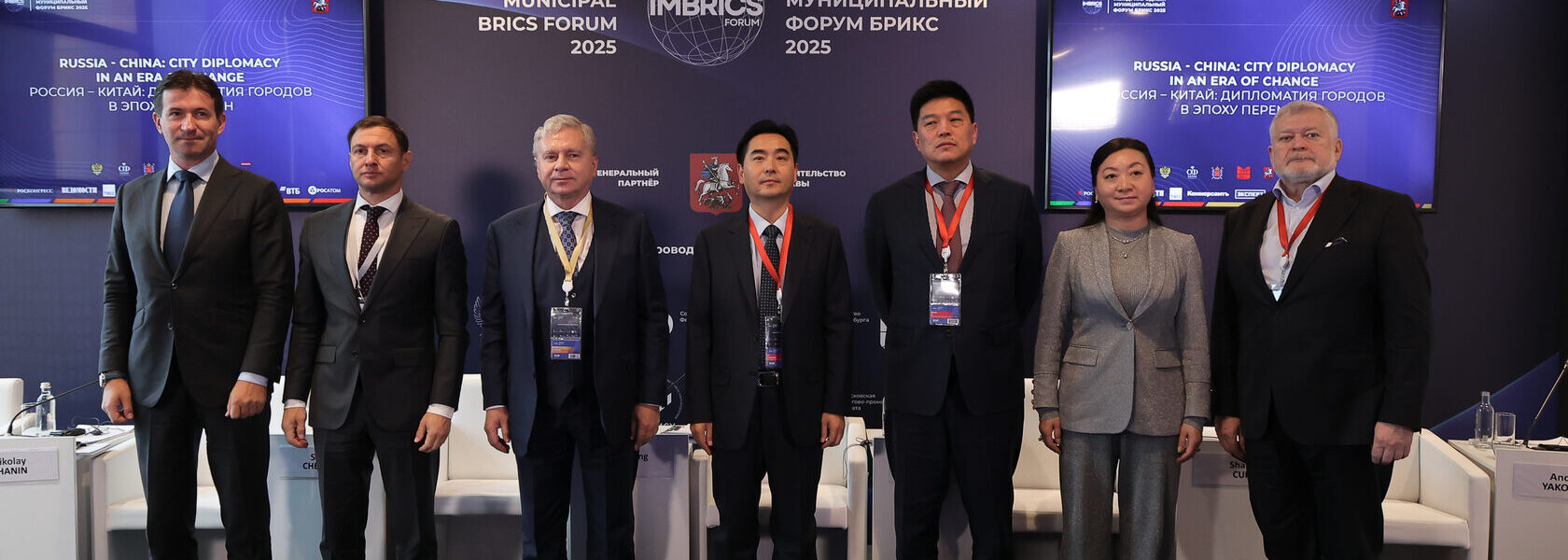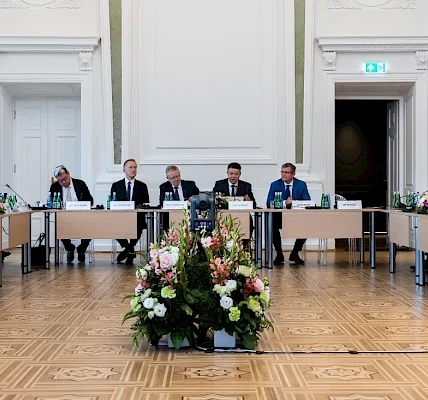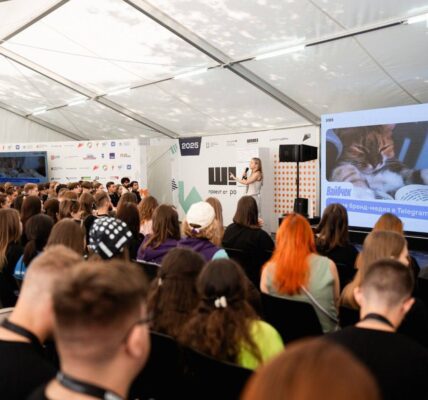When more than 5,500 delegates from 75 countries and over 2,000 cities arrived in St. Petersburg for the 2025 International Municipal BRICS Forum (IMBRICS Forum), the message was unmistakable: cities — not just states — are increasingly taking the lead in shaping the global agenda.
Held at the intersection of diplomacy, economics, and technology, this year’s IMBRICS Forum reflected a growing ambition among BRICS and partner nations to turn local cooperation into global impact. Over the course of several days, mayors, governors, business leaders, and policymakers gathered to share strategies for sustainable urban development, digital transformation, and investment security.
A Meeting of Cities — and Ideas
Now in its fifth year, the IMBRICS Forum has matured into a cornerstone of intermunicipal cooperation among the BRICS countries — Brazil, Russia, India, China, South Africa — and an expanding circle of “BRICS+” partners.
The 2025 edition welcomed a slightly smaller crowd than last year’s 6,000 participants from 101 countries, but the diversity of attendees underscored its widening relevance. Delegates hailed from Africa and Latin America, from Arctic towns and megacities alike.
The Forum’s purpose, as organizers described it, is both pragmatic and aspirational: to serve as a communication and business platform where cities and regions exchange effective solutions for everyday urban challenges — and to weave these exchanges into long-term cooperation under the BRICS framework.
Elena Belyakova, head of the BRICS IFF Directorate, announced that more than 70 cooperation agreements were signed during the event — a tangible indicator of the forum’s growing clout.

From Municipal Dialogue to Action
Unlike many international gatherings heavy on rhetoric, IMBRICS 2025 aimed to translate discussion into strategy. Organizers described the Forum as a “roadmap for concrete action” — a platform designed to move beyond talk toward the establishment of long-term partnerships and implementable models for city and regional growth.
Fifteen practical “tracks” framed the business agenda. These included “Smart Cities and Digitalisation,” “Green Transition and Sustainable Development,” “Municipal Finance and Investment,” and “Tourism, Sport, and Cultural Heritage.” Other discussions explored youth initiatives, social innovation, and the evolving role of municipalities in international relations.
Running in parallel with the Russian Industrialist International Forum and Exhibition, the IMBRICS Forum offered a rare blend of policy dialogue and industrial showcase. For many participants, it was a chance to see innovation in practice — from clean-energy prototypes to AI-driven urban management systems.
A Platform Anchored in the BRICS Agenda
Since 2020, the IMBRICS Forum has been officially included in the BRICS countries’ annual event plan, aligning with the priorities of the rotating presidency. Its institutional importance has steadily grown: the Forum was cited in the Beijing Declaration (2022) and again in the Kazan Declaration (2024) as a significant mechanism for advancing urban cooperation and promoting the United Nations’ 2030 Agenda for Sustainable Development.
The Forum’s inclusion in such high-level diplomatic texts underscores a subtle but notable evolution within BRICS itself — a shift from national-level economic coordination toward a focus on municipal diplomacy. In this framework, cities are not only administrative units but also laboratories for innovation, sustainability, and cultural exchange.
The Human Factor: From Control to Meaning
One of the Forum’s recurring motifs was the role of human creativity in shaping economic and social progress. The thematic section “Transforming the Competencies of Creative Leaders for the Development of Creative Industries” examined how leadership in the arts, media, and design sectors can become an engine for local growth.
“Creative industries are no longer peripheral,” one speaker noted. “They’re becoming central to how cities define themselves.”
For Russia, this sector is gaining strategic importance. As traditional industries undergo digital and ecological transitions, the creative economy offers a space for both cultural preservation and economic diversification. The sector’s potential — from developing tourism clusters to generating jobs — was repeatedly highlighted as a bridge between economic pragmatism and human expression.
The Forum’s subtitle, “From Control to Meaning — the Transformation of Change Leaders,” captured that ethos: leadership today, many participants agreed, must move beyond management toward fostering shared purpose and creativity.
Human Capital as the Cornerstone
A related discussion session, “Municipal Cooperation as a Driver of Regional Integration and International Economic Relations,” placed human capital at the center of global development.
Speakers emphasized that the personality, creativity, and interdependence of individuals form the true foundation of economic growth. Investment in people — through education, cultural exchange, and innovation ecosystems — was described as essential for sustainable integration among regions and countries.
The call for transparency also resonated strongly. Delegates proposed that details of municipal cooperation projects be regularly published in all national capitals, ensuring accountability and wider public understanding.
Such proposals reveal a growing belief that diplomacy at the municipal level can only be effective if citizens themselves are part of the process.
Digital Evolution and the AI Horizon
In nearly every hall of the Forum, discussions converged around one central theme: the digital future.
From healthcare and transportation to municipal management, artificial intelligence and data-driven technologies dominated the conversation. A well-attended business breakfast, “Digital Development. Investments. The Future with Artificial Intelligence,” brought together leading developers, investors, and government officials from across the BRICS countries.
Their shared concern: how to invest in digital innovation without compromising ethical standards, security, or inclusivity.
Participants debated the global implications of AI — not only as a technological force but also as a social one. Cities, they agreed, will increasingly become the testing grounds for balancing automation and human oversight.
Cities as Laboratories for Trust
One of the Forum’s most enduring messages was the need to create cities that combine technological advancement with ecological balance and human well-being.
The “global benchmark,” several speakers said, should be investment security — not merely in financial terms but also as a measure of trust and stability in governance.
Transparency in financial systems, clear legal frameworks, and open communication between public institutions and private investors were repeatedly cited as essential for sustainable urban development. “To attract investment,” one participant summarized, “you must first invest in trust.”
The Green Transition in Municipalities: Beyond Rhetoric
Amid the conversations about AI and smart infrastructure, environmental sustainability remained a core thread throughout the Forum.
The “Green Transition and Sustainable Development” track explored practical pathways toward reducing carbon emissions, improving waste management, and developing renewable energy systems at the municipal level. Several mayors shared case studies of green urban transport systems and energy-efficient housing programs.
Speakers argued that cities are uniquely positioned to implement sustainability measures faster than national governments, given their proximity to communities and ability to pilot localized solutions. The Forum’s alignment with the 2030 Sustainable Development Goals reinforced this message: environmental progress depends on how effectively cities translate global commitments into local action.
Creative Economies and Cultural Bridges
Beyond infrastructure and investment, the Forum dedicated significant attention to culture — particularly the creative industries that increasingly define urban identity and competitiveness.
Roundtables on tourism, heritage preservation, and youth initiatives drew parallels between cultural engagement and economic resilience. In a post-industrial landscape, participants argued, cities thrive not only on technology but also on imagination and cultural capital.
In this spirit, several sessions focused on the creation of new tourist clusters in Russia and across BRICS nations — clusters designed to integrate local craftsmanship, digital storytelling, and community-based entrepreneurship.
As one participant from South Africa put it, “Cultural cooperation builds trust faster than any trade deal.”
Municipal Diplomacy and Soft Power
Another theme running throughout the Forum was the rise of “municipal diplomacy” — the idea that local governments can and should play a direct role in international relations.
By sharing expertise and forming sister-city partnerships, municipalities can build what national diplomacy sometimes struggles to achieve: long-term, people-centered connections.
Delegates cited examples of successful collaboration — from smart city partnerships between Indian and Brazilian municipalities to environmental programs linking Russian and Chinese regions.
In the context of shifting global alignments, this bottom-up diplomacy represents a form of “soft power” increasingly relevant to both BRICS nations and their partners.
A Convergence of Forums and Visions
The simultaneous hosting of the Russian Industrialist International Forum added a practical dimension to IMBRICS 2025. Industrial leaders showcased technologies that directly intersect with municipal needs — energy systems, transport solutions, and green construction materials.
This convergence allowed policymakers and entrepreneurs to interact directly, bridging the often wide gap between strategic vision and technological implementation. For investors, it was an opportunity to explore real projects rather than abstract frameworks.
Such cross-forum collaboration, organizers believe, strengthens the “ecosystem” of international municipal cooperation — one where local governance, business innovation, and global diplomacy meet on equal terms.
The Next Chapter of BRICS Cooperation
The growth of the IMBRICS Forum mirrors the broader evolution of the BRICS initiative itself. What began as a grouping of emerging economies seeking greater influence in global affairs has gradually expanded into a multidimensional network of cooperation — encompassing trade, technology, culture, and now urban governance.
The inclusion of the Forum in official BRICS declarations underscores the recognition that cities are not only the engines of national economies but also platforms for implementing global commitments.
In a world increasingly defined by urbanization — more than half of humanity now lives in cities — the IMBRICS Forum offers a model for how municipalities can operate as nodes in a global network of shared knowledge and collective problem-solving.
From the Local to the Global
At its core, the IMBRICS Forum reflects a shift in how global governance is conceived. Rather than waiting for national governments to resolve global issues, cities and regions are taking initiative — forming partnerships that cross borders and political systems.
This “municipal multilateralism” is not without its challenges. Differences in political culture, economic capacity, and administrative structure often complicate cooperation. Yet the very diversity that complicates the process also enriches it.
By building trust at the municipal level, BRICS countries hope to strengthen their collective resilience — economically, environmentally, and socially.
St. Petersburg as a Stage for Transformation
For St. Petersburg, hosting the Forum was both symbolic and strategic. Long known as Russia’s “window to Europe,” the city now positions itself as a bridge between continents, ideologies, and economic systems.
The Forum’s atmosphere — part conference, part laboratory, part diplomatic fair — reflected the city’s cosmopolitan heritage and its evolving role in global urban diplomacy.
Delegates filled the city’s historic halls with discussions that ranged from AI ethics to youth entrepreneurship. The setting — a city of canals, culture, and contrasts — seemed a fitting metaphor for the Forum’s central message: that sustainable progress emerges from dialogue, diversity, and shared purpose.
Toward a Shared Urban Future
As the final sessions concluded, participants emphasized the importance of maintaining the Forum’s momentum throughout the year — transforming agreements into projects, and projects into tangible results for citizens.
The next edition, planned for 2026, is expected to expand its scope even further, possibly integrating more thematic partnerships on smart governance and environmental finance.
In a closing statement, organizers reiterated the Forum’s founding vision: to make municipal cooperation not a side note, but a driving force in global development.
“Cities are where humanity meets its future,” said one delegate. “If we can learn to cooperate here, at the municipal level, then we can learn to cooperate anywhere.”
What benefits does such an event bring to the Arctic?
Municipal cooperation is a unique tool for sharing experience and best practices.
Municipalities anywhere in the world, despite their different capabilities, face the same challenges. Through collaboration, they can share infrastructure capabilities, knowledge, and expertise, according to the session participants.
Therefore, we hope that the Arctic municipalities will be able to share their experience with their southern colleagues, as well as learn from their successful practices. In our humble opinion, the difference in weather temperatures between the Far North and the global South is no longer an obstacle to a shared vision for joint projects.
Conclusion: The City as the New Diplomat
The 2025 International Municipal BRICS Forum underscored a quiet revolution in how global collaboration takes shape. As national politics grow more complex and polarized, cities are emerging as pragmatic, solution-oriented actors — trading bureaucracy for experimentation, and competition for cooperation. From digital transformation to sustainable development, from creative industries to Arctic partnerships, the Forum’s agenda reflected the interconnectedness of today’s urban challenges. But it also offered something more: a vision of cities not merely as places on a map, but as agents of change — shaping the future, one local innovation at a time.
Source – https://imbrics.moscow/home




